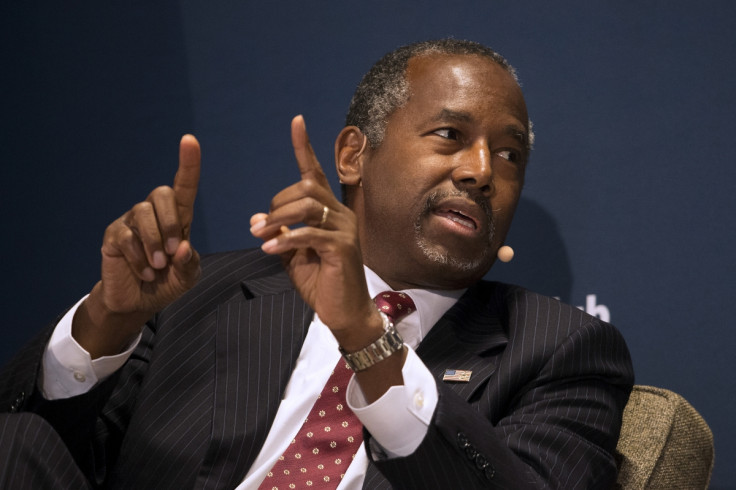Migrant crisis: Republican candidate Ben Carson against Syrian refugees entering US

Just days after President Barack Obama ordered the US to accept at least 10,000 Syrian refugees in the next fiscal year, Republican presidential candidate Ben Carson cited fears of terrorism as a reason the US should not accept any refugees escaping war-torn Syria.
In an interview with CNN, Carson brought up the case of the Tsarnaev brothers, who came to the US in 2002 and bombed the Boston Marathon in 2013. The attack killed three people and wonded more than 260 others. "How did that screening process work for the Tsarnaev brothers?" Carson said to John Berman on The Lead.
He added: "We don't know who those people are, and the majority of them are young males, and they could easily be people who could be infiltrated by terrorists." According to CNN, the GOP candidate, who has surged in the polls recently, said it might be too easy for terrorists to take advantage of the refugee process.
"If I was Isis, if I were the global jihadists, and I knew the United States was about to take in 10,000 or 65,000 or 100,000 people from my region, I would infiltrate them with my people," he said.
On 10 September, President Obama directed his administration to accept at least 10,000 Syrian refugees in the next fiscal year, which begins on 1 October. "We know the scale of this problem. It's significant, and there are millions of people who have been driven from their homes because of this violence," White House Press Secretary Josh Earnest said.
The Obama administration has urged other nations in Europe and the Middle East to "ramp up" their willingness to accept Syrian refugees. In his CNN interview, Carson said the US should encourage countries "in that region" to accept refugees.
"I believe we should encourage the various countries in that region, you know Turkey, the Arabian Peninsula, to take those refugees in," Carson said, adding that the US "should be willing to perhaps help them financially and with some expertise. But the fact of the matter is, we don't know who those people are."
© Copyright IBTimes 2024. All rights reserved.






